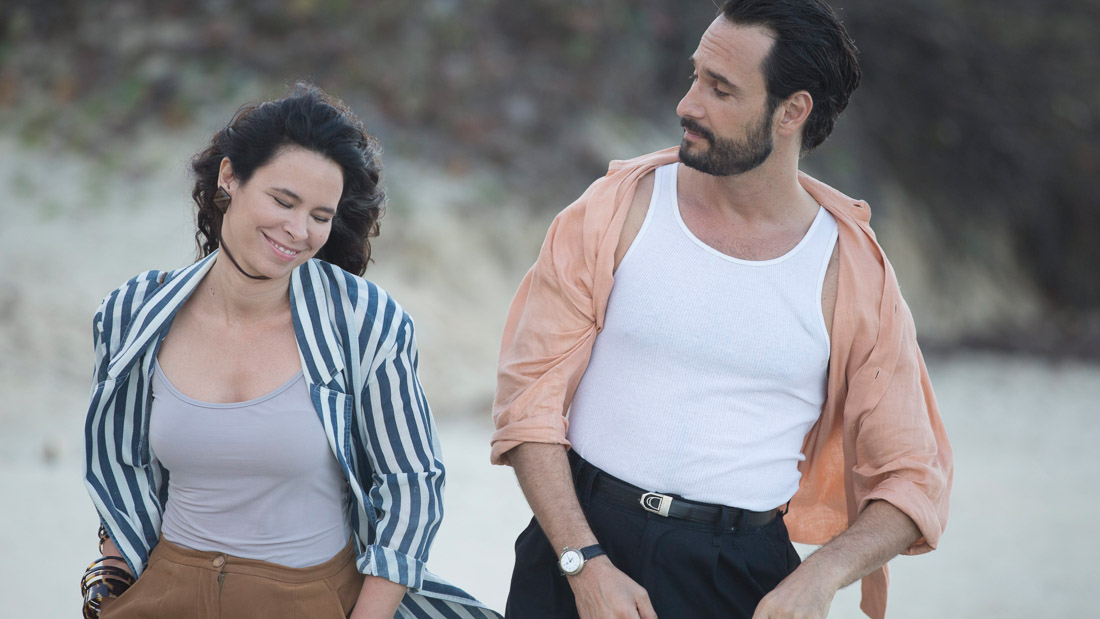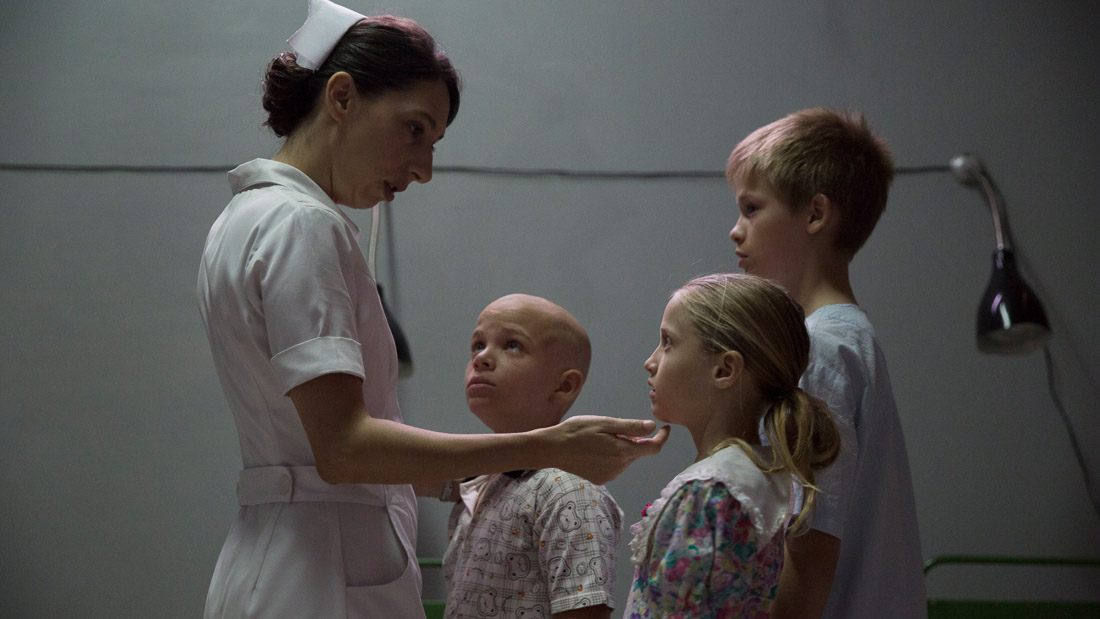It’s the late 1980s in Havana, Cuba. The country is still cozy with the U.S.S.R. when it accepted an unexpected import from its Soviet ally: children, sick and dying from radiation poisoning in the aftermath of Chernobyl. In order to cope with the influx of non-Spanish speakers, the government suspends the Russian Department of Literature at a Havana university and recruits its professors to become translators between the Cuban doctors and their new patients.
One of these translators, Malin (Rodrigo Santoro), befriends a tough nurse, Gladys (Maricel Álvarez), who teaches him the ropes of working with patients and warns him about getting too attached to children who will likely die from their illnesses. It soon becomes apparent that the government assignment will cost Malin more than he thought. Tensions between him and his wife, Isona (Yoandra Suárez), begin to reveal fractures in their marriage, and Malin grows more distant with his son, Javi (Jorge Carlos Perez Herrera). At work, Malin must reckon with mortality, the lack of emotional support and the never-ending worry for his family as the Special Period rolls in and wipes out store shelves across the country.

Directors and brothers Rodrigo “Rocco” and Sebastián Barriuso knew firsthand about this semi-forgotten chapter of Cuban history because their father was the inspiration for Malin. Their film, Un traductor, is both a personal tribute and a moving retelling of one man’s part in history, and it is now Cuba’s entry into the Best International Feature Film category. Infused with equal measures of work and domestic drama and a sense of helplessness in his situation, the movie is full of emotional moments, brought to life on the screen by a talented cast. Although Malin still comes off as an impressive hero in Lindsay Gossling’s script, he’s decidedly more human, imperfect in the way emotions can still get to him and the way he pushes his family so far out of his mind, he pushes them away. Resenting his artist wife for making small requests to take care of his own son shows Malin in an unflattering, but very human, light.
Although his Cuban accent is fairly spot-on, Santoro is actually a Brazilian actor who about a decade ago immersed himself in Cuban culture to play Raúl Castro, one of the most prominent leaders in the island’s recent history, in the Steven Soderberg production of Che. For A Translator, Santoro not only had to brush off his Cuban accent, he also had to pick up Russian in order to play the part of a teacher specializing in the language.
He’s called upon to perform a very conflicted character, one that feels duty-bound to his assignment and frustrated that he can’t do better at home or work. Malin’s world is ripped in two: one at his comfortable home with his wife and son and the other with the kids he cares about who are stuck in the gray-green hospital for perhaps what might be the rest of their days. Miguel Ioann Littin Menz’s richly textured cinematography plays up Malin’s feeling of a dual existence. The hospital scenes look washed out in white or ominously shaded under green tones, looking every bit as scary for the kids as they do for the adults. By comparison, Malin shares a spacious house with his wife, whose art and tastes adorn it like a model home, making stylish yet simple. Even under the pinch of fewer supplies at the store and no gas at the stations, his home still feels like a considerable luxury compared to his new workplace.

One of the patients Malin connects with is a little boy isolated from the other kids because of his compromised immune system. Alexi (Nikita Semenov) is a sensitive kid who asks Malin many questions. He, in turn, reads to Alexi, gets the kids to make a gift for him and keeps the boy company with his father. When the power goes out at the hospital, a not uncommon occurrence during the Special Period, Malin rushes to Alexi’s side to get the attention of the staff to help him. Out of the 25,000 Chernobyl patients treated in Cuba, this was just one story out of many; yet these small, daily interactions never feel insignificant in the movie’s scope.
A Translator models how a person experiences being a part of history through both its pains and glories. That person will have a story to pass on to their kids but also the memories of loss or fear future generations may not understand. Yet, the movie’s most bittersweet note comes at the end, just as Malin learns about a change of plans. Would there be any kind of preparation or a transition period? Gladys only answers with a question: Was he given one at the start of this assignment? She walks away, leaving the movie in a pensive mood about the unpredictable nature of forces beyond our control, be it a man-made disaster or a government assignment.
Un traductor is screening on November 26 in Los Angeles as part of Hola Mexico Film Festival’s Latin American Nomination Screenings.







